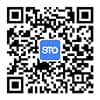The words "eccentric," "strange," and "freak" can have overlapping meanings, but they are not completely interchangeable. Here's a breakdown of each term and when they might be used:
Eccentric
- Meaning: Refers to a person or behavior that is unconventional or slightly odd but often in a charming or interesting way. Eccentricity is usually seen as a trait rather than a flaw.
- Usage: Often used to describe someone who has unique habits, tastes, or beliefs that set them apart from the norm, without implying any negative judgement.
Strange
- Meaning: Refers to something that is unusual, unfamiliar, or weird. It can be used to describe a wide range of contexts, including objects, situations, and people.
- Usage: This term is more general and can have a broader connotation. It can be neutral, positive, or negative depending on the context. For example, "That’s a strange idea" could indicate curiosity or disapproval.
Freak
- Meaning: Typically refers to someone who is markedly different from the norm, often in a negative or derogatory sense, though it can also be used in a more playful or self-identified way (e.g., "I'm a fitness freak").
- Usage: While it can denote someone who is unconventional, "freak" often implies a greater degree of abnormality or has connotations of being outcast or ridiculed, especially if used in a pejorative manner.
Conclusion
- Interchangeability:
- Eccentric vs. Strange: You can sometimes use "strange" as a synonym for "eccentric," but "eccentric" carries a more neutral or positive connotation compared to "strange," which can be seen as more negative or alarming.
- Eccentric vs. Freak: These are less interchangeable. While an "eccentric" person might be seen as quirky and interesting, a "freak" is often perceived as more extreme and potentially negative.
In summary, while there are overlaps, the choice of word depends on the context and the intended tone. Eccentric is often more favorable, strange is neutral or slightly negative, and freak often has a more negative or extreme implication.







